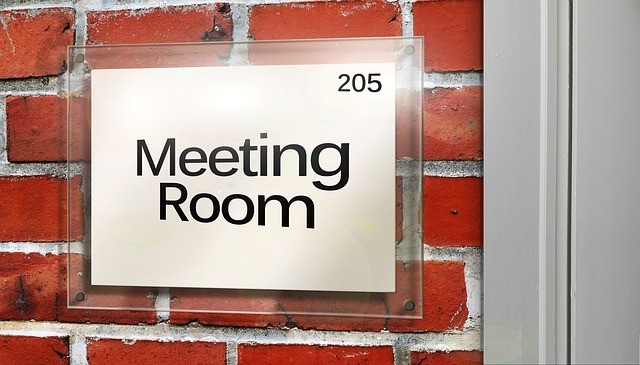Modern start-ups have little need for a permanent meeting space and having constant access to one can even be damaging. Booking an external meeting room, either in a shared unit or a serviced office, gives businesses all the benefits with none of the headaches.
Meetings can be a divisive subject. Few could deny that they have a significant role, even in the modern workplace. Face-to-face engagement is healthy for a team, as is being physically removed from the bustle and clutter of the main office. Meetings offer a chance to air grievances and deliver praise in a personal way. However, it is also difficult to deny that meeting culture has grown somewhat unwieldy over the past few decades.
A few years ago, an MIT study found that 11 million meetings were being held every working day in the US alone. This volume is clearly unsustainable: according to Atlassian data, 39% of employees have slept in a meeting, while 47% identified them as the biggest waste of time in their office. Without a doubt, something needs to change.
Meet and think
In Europe and the US, changing economic circumstances over the past decade have led to the rise of small companies and small offices – a dedicated meeting room is now something of a luxury for most SMEs. At the same time, changing lifestyle requirements mean many (if not most) employees now work flexibly, with the Monday-Friday 9-5 pattern becoming a thing of the past, making both regular and ad-hoc meetings less feasible and less relevant. In their place, businesses are left with two choices: either stop having face-to-face meetings at all, or make use of external meeting spaces.
The former may be relevant for a small subset of companies; ICT service providers, for example, may be able to rely solely on virtual meetings and the same goes for firms with multiple small offices in different countries. For the vast majority, however, booking a meeting room is the perfect solution.
Young, agile companies looking to grow have little use for huge offices with large, empty glass rooms – an efficient use of space is key for most start-ups. A reasonably priced external meeting room ensures that businesses aren’t infringing on their employees’ minimum office space per person, while simultaneously ensuring that meetings don’t end up dominating the working day. The ability to quickly and easily book a meeting room should be a priority for every young company for these reasons alone, but the benefits don’t end there.
Shared services
Most serviced meeting rooms come fully equipped technologically, allowing remote attendance, recording and presentation features to be seamlessly integrated into any meeting. Removing the cost and inevitable headache of maintaining such facilities in an in-office meeting room is invaluable, especially if the meeting exposes a business to external scrutiny, e.g. if clients or investors are involved.
Similarly, many serviced offices offer meeting planners or assistants, who can take care of sending reminders, providing refreshments and pre-organising equipment. This may seem like a less affordable option but, in the long term, it’s far more economical than taking staff away from their regular work to set things up every time.
Shared offices spaces, on the other hand, might not be able to offer dedicated planners but, instead, they have the benefit of increasing networking opportunities. Sharing a meeting room with other tenant businesses will make fruitful â€Âcollisions’ a common occurrence, and could even lead to collaborative projects over time – something that can be truly valuable to start-ups looking to expand their horizons. Scalability is also a benefit here, as each business can take on as much or as little space as they need, meeting rooms included.
In either set-up, by choosing not to have a permanent meeting room, businesses benefit not only from increased flexibility, but also from the psychological benefit of keeping the volume of meetings at a sustainable level. The need to pre-book prevents employees from calling unnecessary meetings, allowing them to work in a less rigid, more flexible manner. At the same time, those meetings that do take place become, by nature, more serious and to-the-point. With less wasted time and greater productivity on offer, the choice is simple – make sure the ability to quickly and easily book a meeting room is on your next office relocation checklist.

